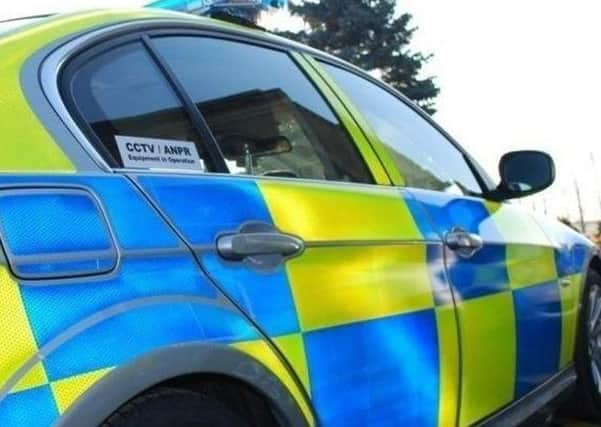Sheffield MP raises fears over fall in traffic cops over last decade


Experts have questioned how new laws, such as the ban on using mobiles while driving, can be enforced with 30 per cent fewer officers dedicated to policing the country's roads.
All 45 police forces in England and Wales were asked how many dedicated traffic officers they have today compared with five and 10 years ago.
Advertisement
Hide AdAdvertisement
Hide AdThe results reveal that the number is down 30 per cent since 2007.
In 2007 there were 3,766 traffic officers in posts in the forces which responded. In 2012 that figure stood at 3,472. By 2017 it had dropped to 2,643.
South Yorkshire Police does not know how many traffic officers it employed 10 years ago, but revealed there are 76 today compared to 78 five years ago.
In Derbyshire, the number of traffic officers has fallen by 49 per cent over the last 10 years, with 64 employed today compared to 87 in 2012 and 125 in 2007.
Advertisement
Hide AdAdvertisement
Hide AdIn West Yorkshire there are 133 in post now compared to 218 five years ago. The force does not hold details for the number employed in 2007.
The AA said the decline could see more drivers getting away with crimes.
A spokesman said: "We need more cops in cars, not fewer.
"The UK has among the safest roads in Europe, although the number of people killed and seriously injured on our roads has started to rise after many years of steady decline. Maybe there is a link?"
Responding to the figures, the Home Office said effective road policing is not just dependent on dedicated traffic officers, while the National Police Chiefs' Council (NPCC) pointed out that all officers were able to help traffic specialists.
In total, 30 forces released figures.
Advertisement
Hide AdAdvertisement
Hide AdOf the rest, 11 did not hold data for the full 10 years and three had merged traffic into tri-force operations.
Labour's shadow minister for policing and crime - Sheffield MP Louise Haigh - said: "These savage cuts will deeply alarm the public as reckless drivers will feel able to offend with impunity."
She added: "There have been a number of new driving offences in the last few years, not least relating to phones and the new offence of causing serious injury by dangerous driving.
"The police don't stand a cat in hell's chance of pursuing and convicting people under these offences with ever-constrained resources."
Advertisement
Hide AdAdvertisement
Hide AdJason Wakeford, from road safety charity Brake, added: "On average, five people die every single day on our roads. This is unacceptable.
"The Government and police forces have to start treating road policing as a national priority and reverse the savage cuts to officer numbers."
West Mercia Chief Constable Anthony Bangham, who leads on roads policing for the NPCC, said: "Individual police forces decide how best to allocate resources and keep their communities safe.
"Some may choose to reduce the numbers of specialist traffic officers, but this does not mean that their roads are not adequately policed.
Advertisement
Hide AdAdvertisement
Hide Ad"They can deploy a range of resources, including Automatic Number Plate Recognition technology, targeted patrols using unmarked vans, high vantage points and helmet cams to catch offenders.
"All police officers are available to help those who are traffic policing specialists."
The Home Office said deployment of resources was a matter for chief constables and crime commissioners, who 'understand their operational needs better than anyone'.
A spokesman said: "The Government has protected overall police spending in real terms since the Spending Review 2015 and we will always ensure forces have the resources they need to do their vitally important work.
Advertisement
Hide AdAdvertisement
Hide Ad"Effective roads policing is not necessarily dependent on dedicated road traffic officers: the use of technology, other police personnel and local communities also have a role to play."
But Jayne Willetts, who speaks on roads policing for the Police Federation of England of Wales, which represents rank and file officers, said cuts meant specialist roads policing officers now face added demands.
"They are having to attend calls for help from the public in addition to patrolling the road network to target travelling criminality."
She added: "The introduction and use of new technology is welcome but the visibility of the police cannot be overstated as a deterrent and a reassurance to the public.
"Unfortunately the thin blue line is becoming too thin."